Eid al-Adha 2021: when is Greater Eid and how is it celebrated?
The ‘Festival of the Sacrifice’ marks the end of the annual Hajj pilgrimage
A free daily email with the biggest news stories of the day – and the best features from TheWeek.com
You are now subscribed
Your newsletter sign-up was successful
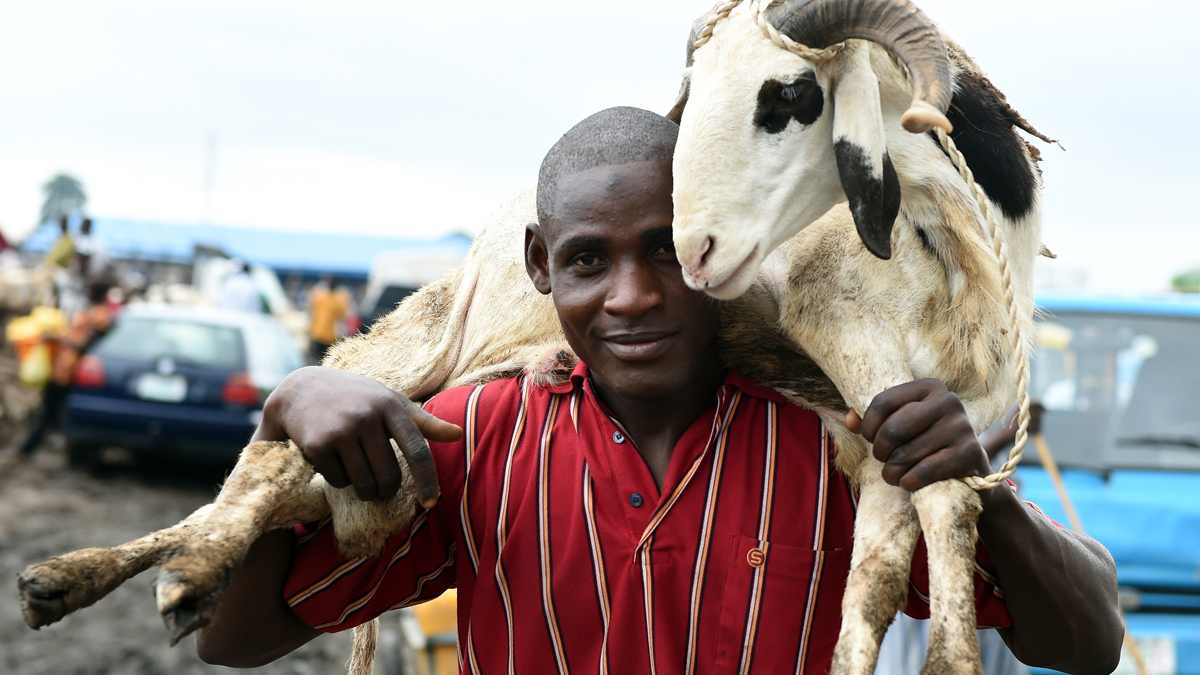
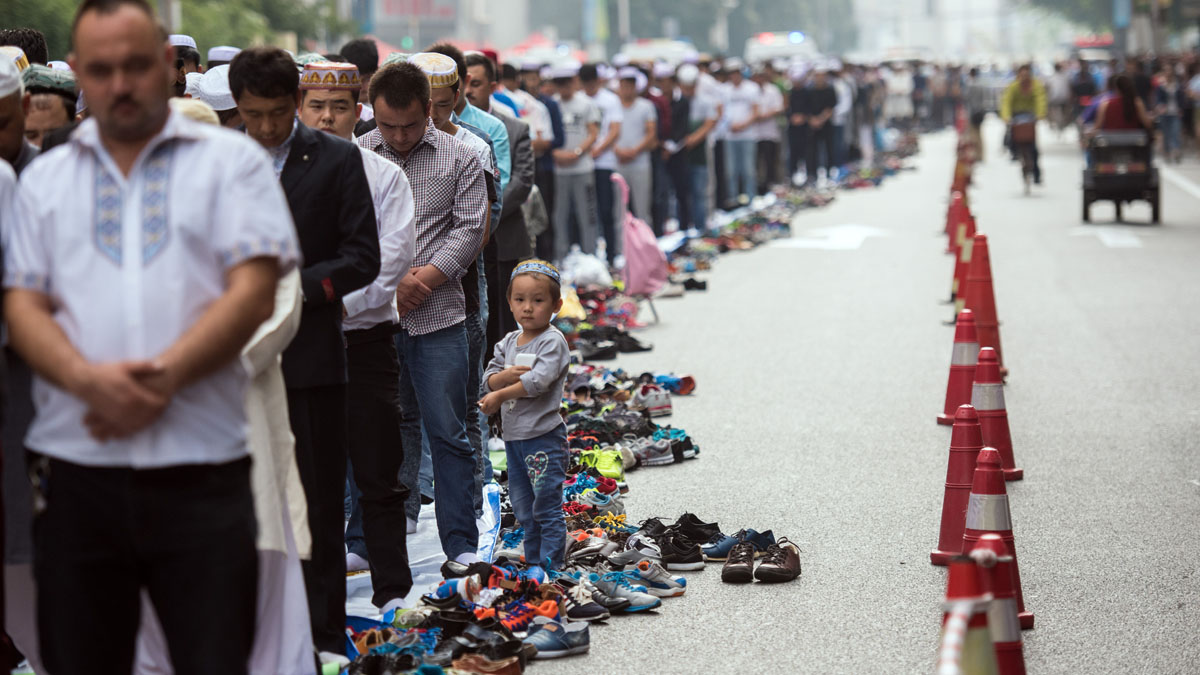
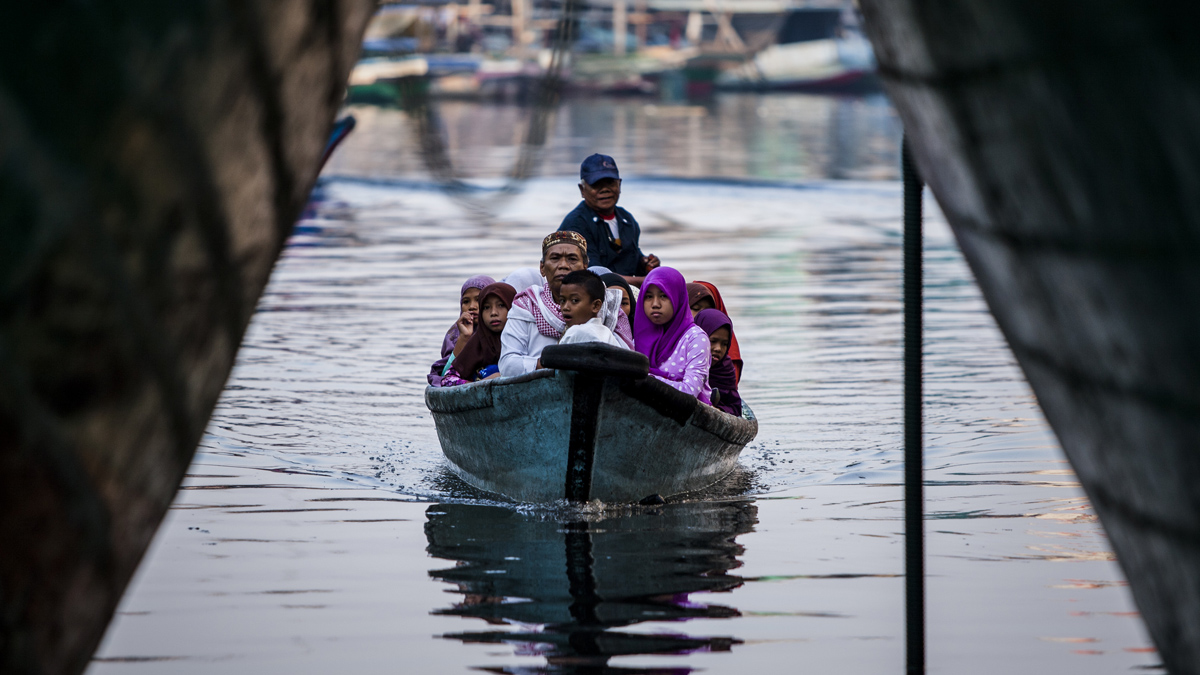
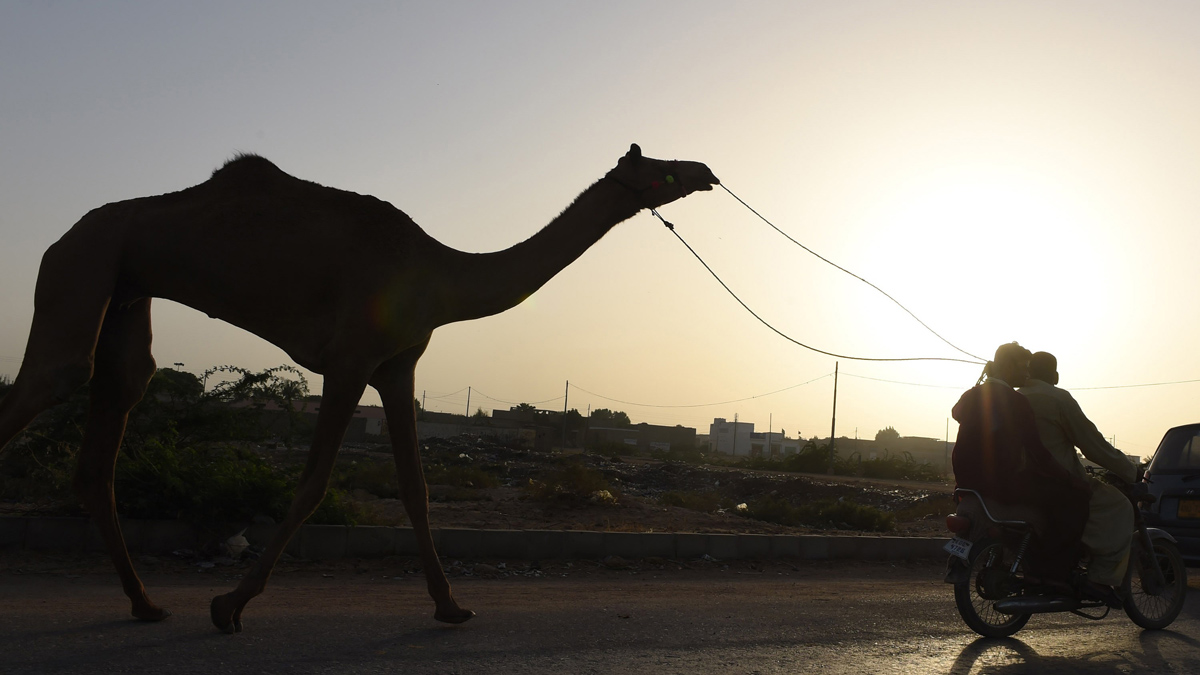
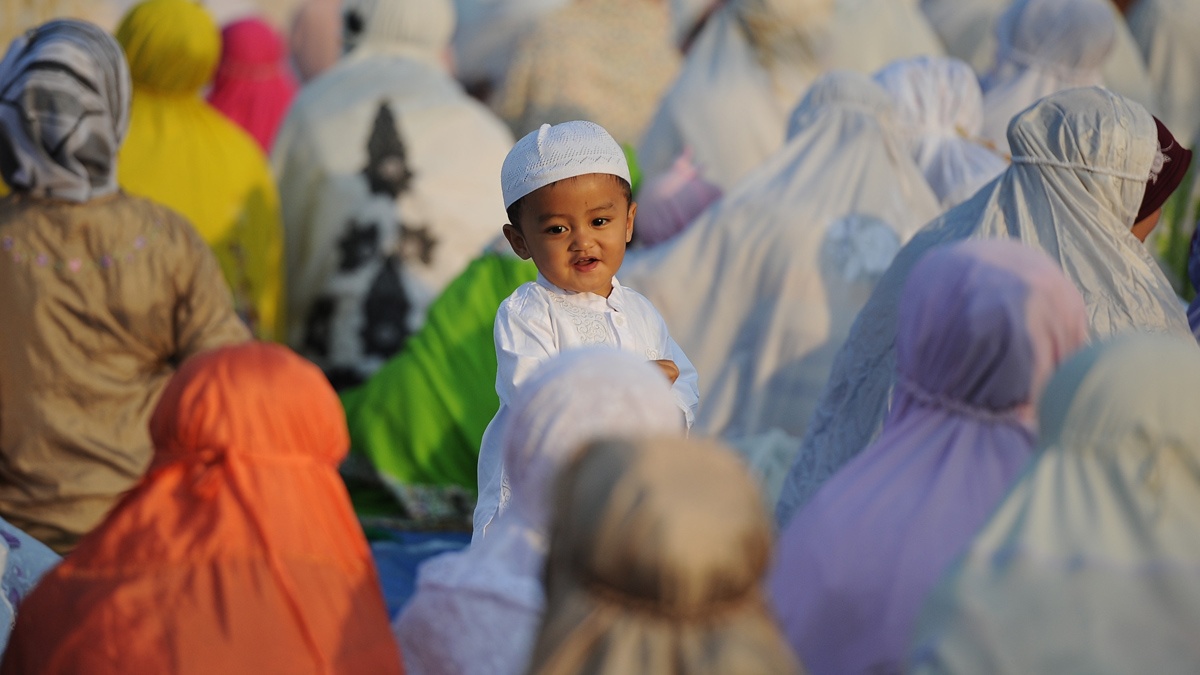
For the second year in a row, many of the world’s 1.6 billion Muslims will be celebrating Eid al-Adha, one of the two most important festivals in the Muslim calendar, under stringent Covid-19 restrictions.
The “Festival of the Sacrifice”, as it is known, centres around prayer and animal sacrifice. It is not always easy to predict when Eid al-Adha will take place; it follows the Islamic Hijri calendar which is based on the lunar rather than Gregorian cycle.
The festival always falls on the tenth day of Dhu al-Hijjah, the twelfth month of the Islamic Hijri calendar, which begins with the confirmed sighting of a crescent moon. Some countries and religious communities follow Saudi Arabia's official sighting, while others await their own.
The Week
Escape your echo chamber. Get the facts behind the news, plus analysis from multiple perspectives.

Sign up for The Week's Free Newsletters
From our morning news briefing to a weekly Good News Newsletter, get the best of The Week delivered directly to your inbox.
From our morning news briefing to a weekly Good News Newsletter, get the best of The Week delivered directly to your inbox.
This year, Saudi officials called on their citizens to look for the crescent moon on 9 July, with Eid al-Adha expected to begin on 19 July. “However, there was no sighting, with Saudi Arabia declaring that Eid would begin on 20 July instead,” the i newspaper reports.
How many Eids are there?
“Eid al-Adha is one of two Eids, or days of celebration for Muslims worldwide, in a year,” a Muslim Council of Britain spokesperson told The Independent.
“It coincides with the completion of the Hajj, which millions of people partake in every year.”
A free daily email with the biggest news stories of the day – and the best features from TheWeek.com
Eid-al-Fitr, also known as Lesser Eid, marks the end of Ramadan, when Muslims break their month-long fast.
What does Eid al-Adha celebrate?
Islamic scripture tells how Allah commanded Ibrahim – known as Abraham to Christians and Jews – to sacrifice his son Ismail as a test of his devotion. Despite his love for the boy, Ibrahim duly prepared to carry out Allah’s command.
However, at the last moment, Allah tells Ibrahim to spare the child and sacrifice something else instead. In remembrance of Ibrahim’s willingness to submit himself to the divine will, Muslim families traditionally sacrifice an animal during Eid al-Adha.
Non-Muslims will probably recognise the story from the Bible, where it appears in a similar form. Interestingly, Muslim scholars generally identify the son in question as Ishmael, Abraham’s son by his concubine Hagar, whereas in the Jewish and Christian tradition it is Isaac, Abraham’s son with his wife Sarah.
Another difference is that, in the Islamic version of the tale, Ibrahim tells Ishmael about Allah’s command, whereas the Biblical Abraham did not reveal his intentions to Isaac. As the Koran tells it, Ishmael readily accepts his fate and urges his father to comply with Allah’s will.
Therefore, Eid al-Adha is a commemoration of both father and son for their example of obedience and submission to the divine will.
When is Greater Eid this year?
The exact beginning of the festival varies depending on location, but in the UK this year, Eid al-Adha will begin on 20 July and last for three days.
How is Greater Eid celebrated?
In Muslim countries, Eid al-Adha is a public holiday that involves animal sacrifice, known as Qurbani, prayers and family gatherings. The day begins with morning prayers, followed by visits to family and friends and the exchange of food and gifts. Muslims traditionally greet each other on the day by wishing one another “Eid mubarak” (Blessed Eid) or one of many regional variations on the blessing.
Worshippers who can afford to will slaughter an animal, typically a sheep or a goat, during Greater Eid celebrations as a symbol of Ibrahim’s sacrifice to Allah.
All animals have to meet certain standards in order to qualify for sacrifice. They cannot be ill, blind, visibly lame and emaciated and minimum age restrictions apply.
“For Muslims, Qurbani is the most important sacrifice of the whole year,” said Moulana Yunus Dudhwala, from the UK’s Halal Monitoring Committee. “Abattoirs and butchers must remain vigilant and responsible in ensuring all laws pertaining to Qurbani are adhered to, so that this important spiritual day is not ruined by intentional or unintentional wrongdoing.”
It is common for animals to be sacrificed on the streets in many Muslim countries, but in recent years Egypt has attempted to crack down on the practice. Leaving behind the remains of the animal spreads diseases and is considered “impure” by the Koran, authorities said.
“Islam is a religion of civilisation, cleanliness, and beauty - this religion never called for an action that would hurt other people and harm public interest,” an advisor to Egypt’s Grand Mufti said ahead of last Adha, reports Egypt Today.
In Pakistan alone, nearly ten million animals are slaughtered on Eid, the International Business Times reports. In Britain, anyone wishing to sacrifice a sheep has to make arrangements for it to be slaughtered humanely.
Believers are expected to share their food with the less fortunate. Traditionally, the meat is divided into three equal parts: one for the home; one for family, friends and neighbours; and one for the poor. Muslims are also expected to make donations to charity to mark the festival.
The eye-catching centrepiece of the festival, however, is the sight of around two million worshippers dressed in white gathering at Mecca for a five-day pilgrimage called Hajj.
What does the Hajj involve?
The Hajj is the pilgrimage to Mecca, Islam’s holiest site, and is an integral part of the Muslim faith. According to the Koran, all Muslims who can afford to should make the journey to Saudi Arabia at least once in their lifetime.
Ordinarily, at least two million Muslims make the pilgrimage, circle the huge black Kaaba shrine - built by Ibrahim, according to Islamic tradition - and pray to Allah. The prophet Muhammad said that a person who performs Hajj properly “will return as a newly born baby [free of all sins]”.
However, The Washington Post reports that this year, due to coronavirus, Saudi authorities have curtailed the once-in-a-lifetime experience to only 60,000 worshippers already present in the country. Last year the Hajj was limited to just 10,000 local residents in order to maintain social distancing.
“Some hoped the hajj would be fully reopened this year as a result of widespread vaccination campaigns around the world, but Saudi authorities decided to again limit the numbers for the safety of pilgrims,” the Washington Post reports.
Pilgrims usually fly to Jeddah and then travel by bus to Mecca, where there are two rituals to perform: the lesser pilgrimage, or Umrah, and the main pilgrimage, or Hajj. Pilgrims are expected to wear special white clothes - also called ihram - and to carry out several days of rituals where they pray, repent for past sins and take part in a symbolic “stoning of the devil”.
Pre-Covid times, the sheer number of believers able to carry out their religious duty thanks to modern transportation made the 21st century Hajj a spectacular sight, but also a nightmare for Saudi authorities trying to keep upwards of two million pilgrims safe. In 2015, more than 2,000 people were crushed to death in a bottleneck of densely packed crowds, the deadliest incident in Hajj history.
Since the tragedy, the Saudi government has deployed extra security forces and installed thousands of CCTV cameras to monitor the crowds.
-
 How the FCC’s ‘equal time’ rule works
How the FCC’s ‘equal time’ rule worksIn the Spotlight The law is at the heart of the Colbert-CBS conflict
-
 What is the endgame in the DHS shutdown?
What is the endgame in the DHS shutdown?Today’s Big Question Democrats want to rein in ICE’s immigration crackdown
-
 ‘Poor time management isn’t just an inconvenience’
‘Poor time management isn’t just an inconvenience’Instant Opinion Opinion, comment and editorials of the day
-
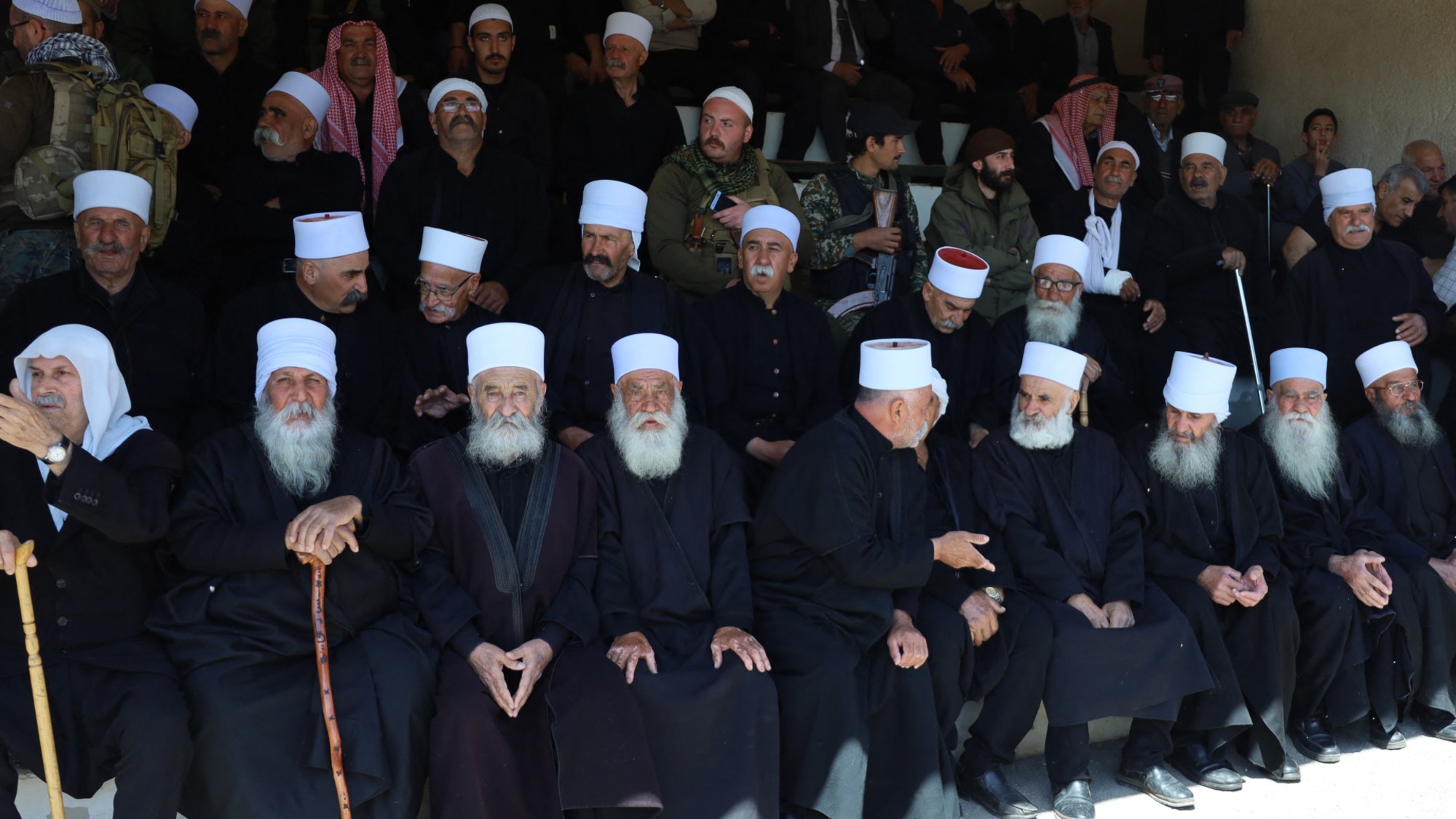 Syria's Druze sect: caught in the middle of Israeli tensions
Syria's Druze sect: caught in the middle of Israeli tensionsThe Explainer Israel has used attacks on religious minority by forces loyal to Syria's new government to justify strikes across the border
-
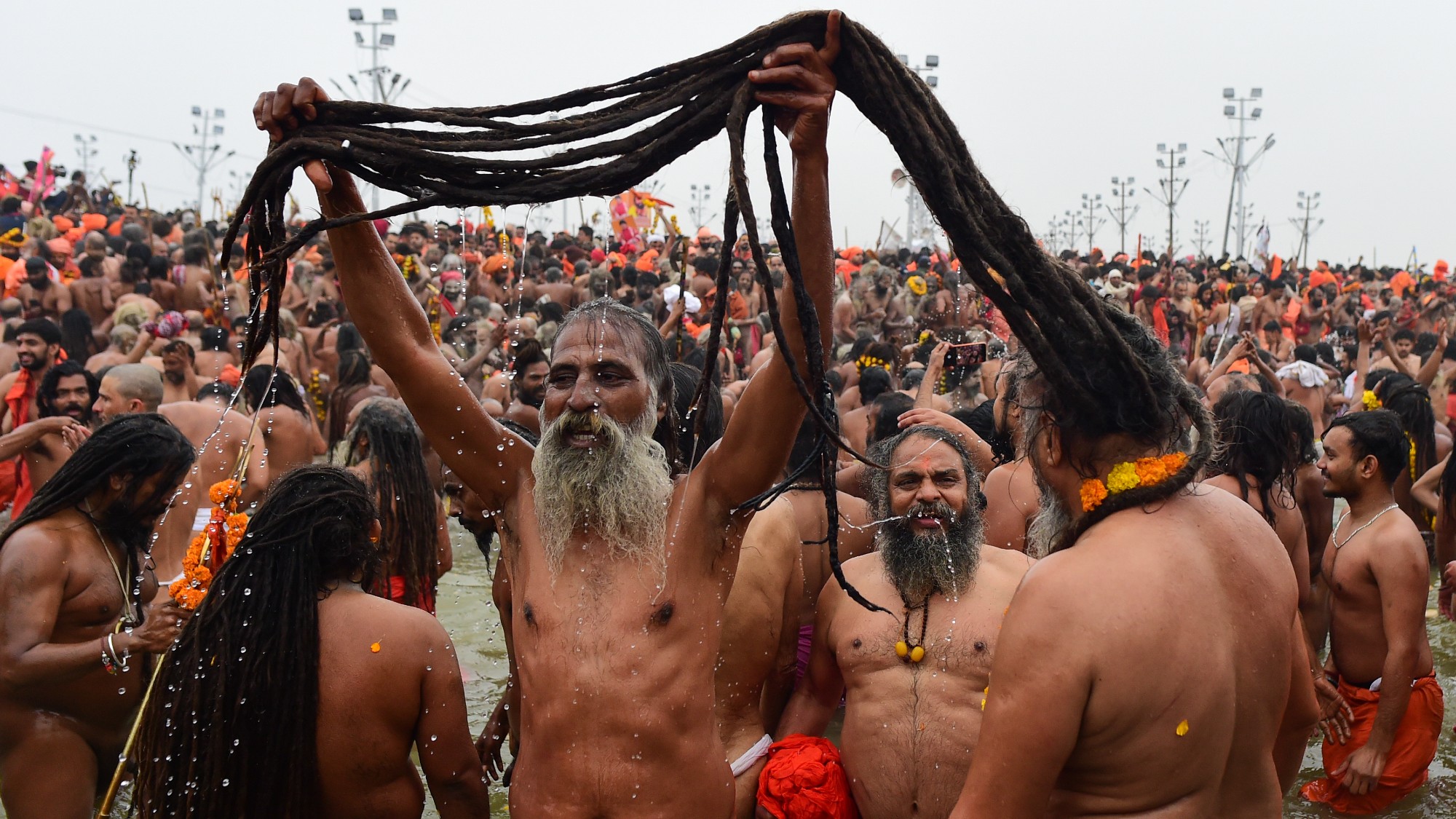 Maha Kumbh Mela: world's largest religious festival gets under way in India
Maha Kumbh Mela: world's largest religious festival gets under way in IndiaIn The Spotlight Politics of Hindu nationalism has cast a shadow over event touted as biggest ever gathering of humanity
-
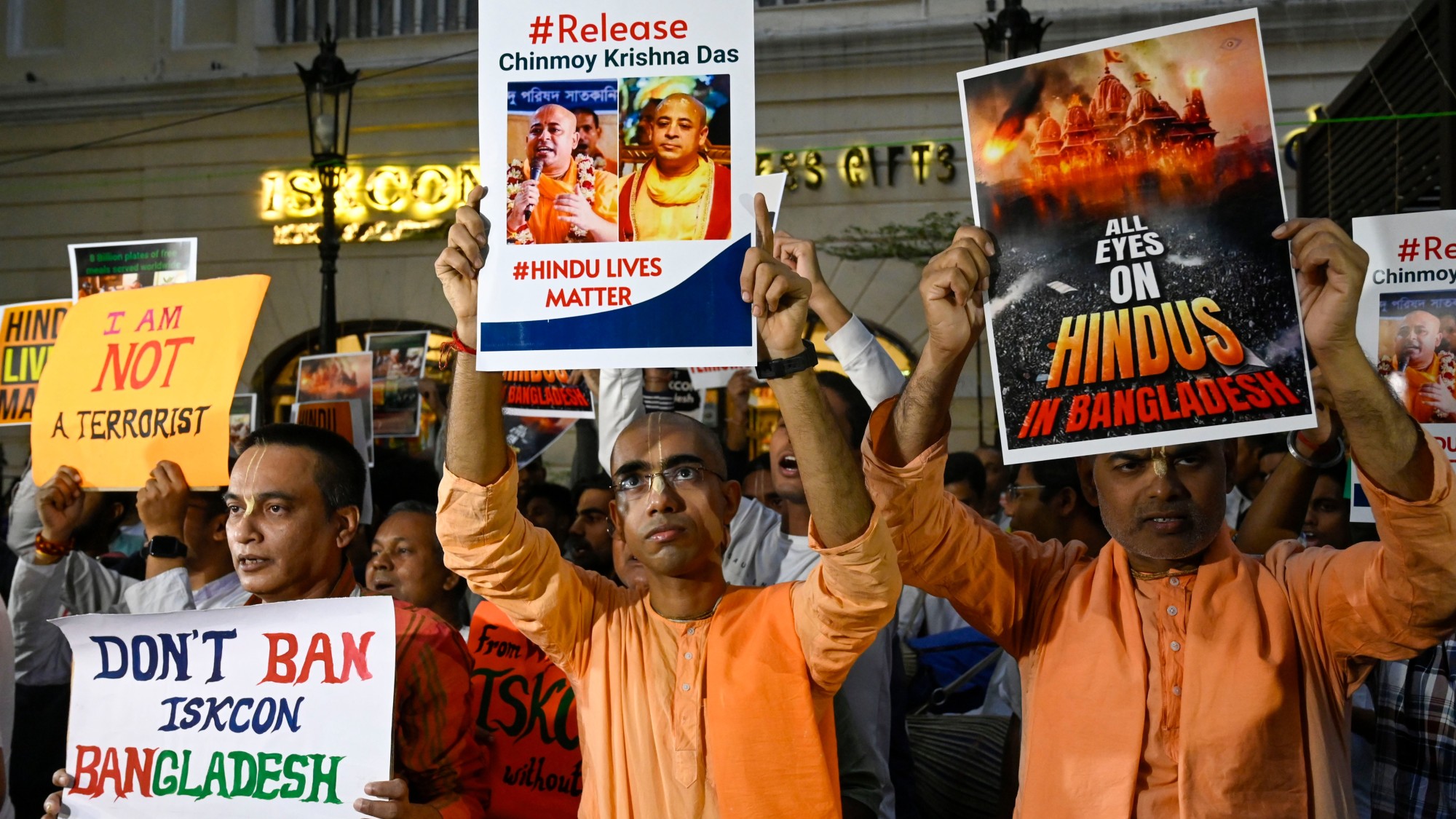 Why India is concerned at Bangladesh's 'Hinduphobia'
Why India is concerned at Bangladesh's 'Hinduphobia'The Explainer Arrest of monk Chinmoy Krishna Das stokes safety concerns for Hindu minority in Bangladesh
-
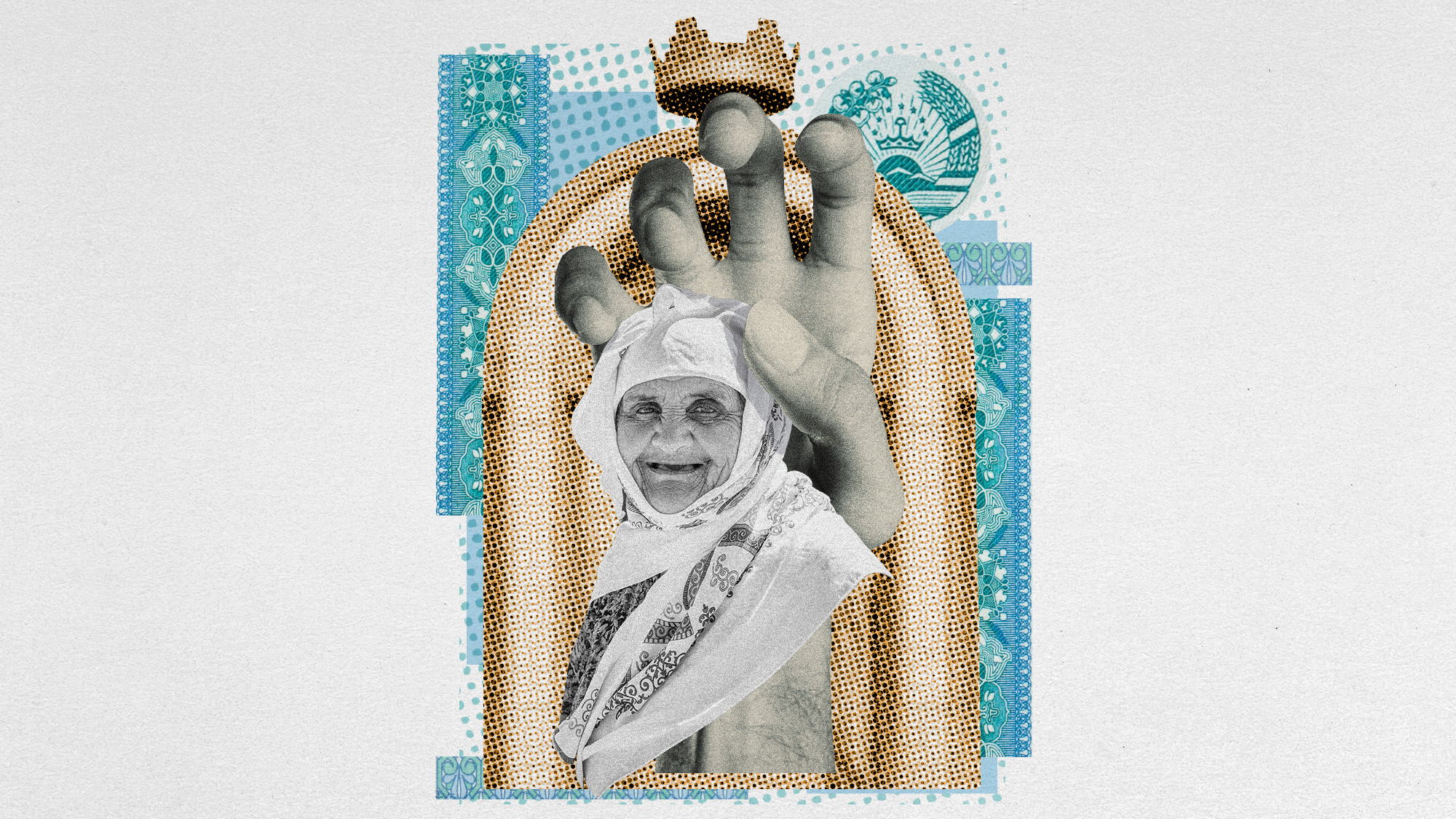 The 95% Muslim country that has banned the hijab
The 95% Muslim country that has banned the hijabUnder The Radar Outlawing the headscarf is the latest chapter in Tajikistan's clampdown on Islamic culture
-
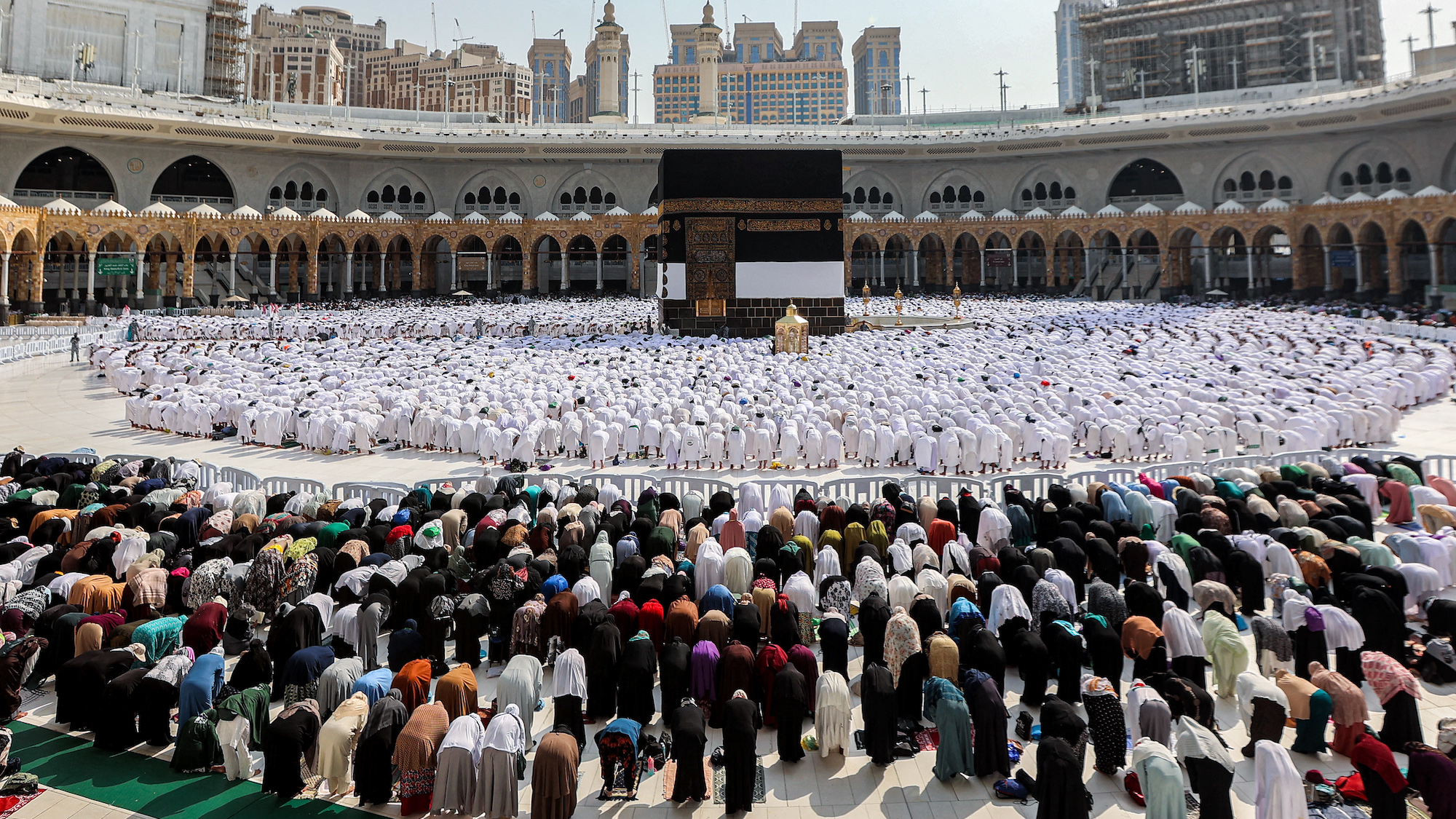 The unauthorised pilgrims sneaking into Mecca
The unauthorised pilgrims sneaking into MeccaIn the Spotlight Saudi authorities are warning of heavy fines for those caught travelling to the holy city this month without a permit
-
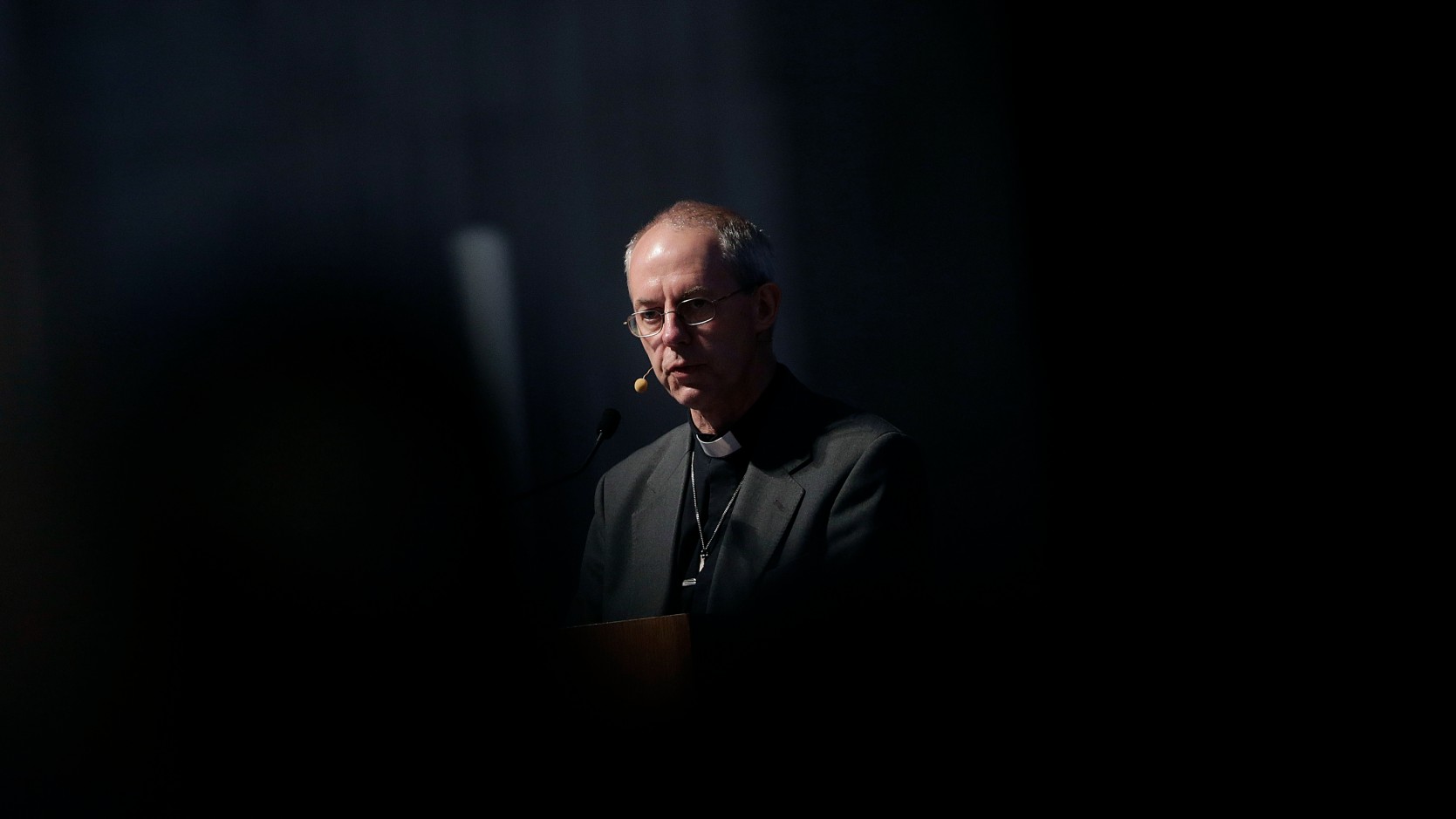 What does the rise in non-Christians mean for the Church of England?
What does the rise in non-Christians mean for the Church of England?Today's Big Question Latest census reveals England and Wales now minority Christian countries for first time
-
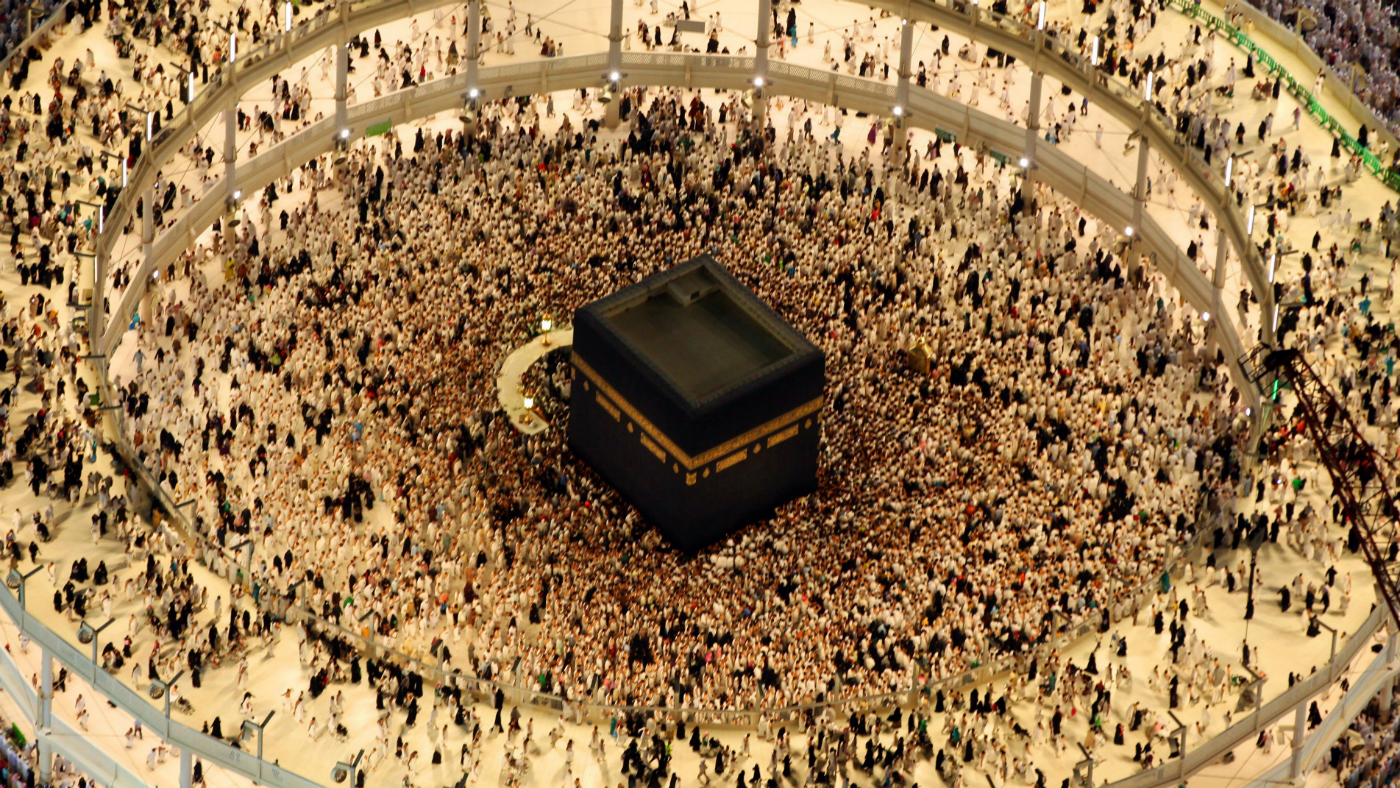 52 ideas that changed the world - 51. Islam
52 ideas that changed the world - 51. IslamIn Depth Followers of the religion make up a quarter of the global population
-
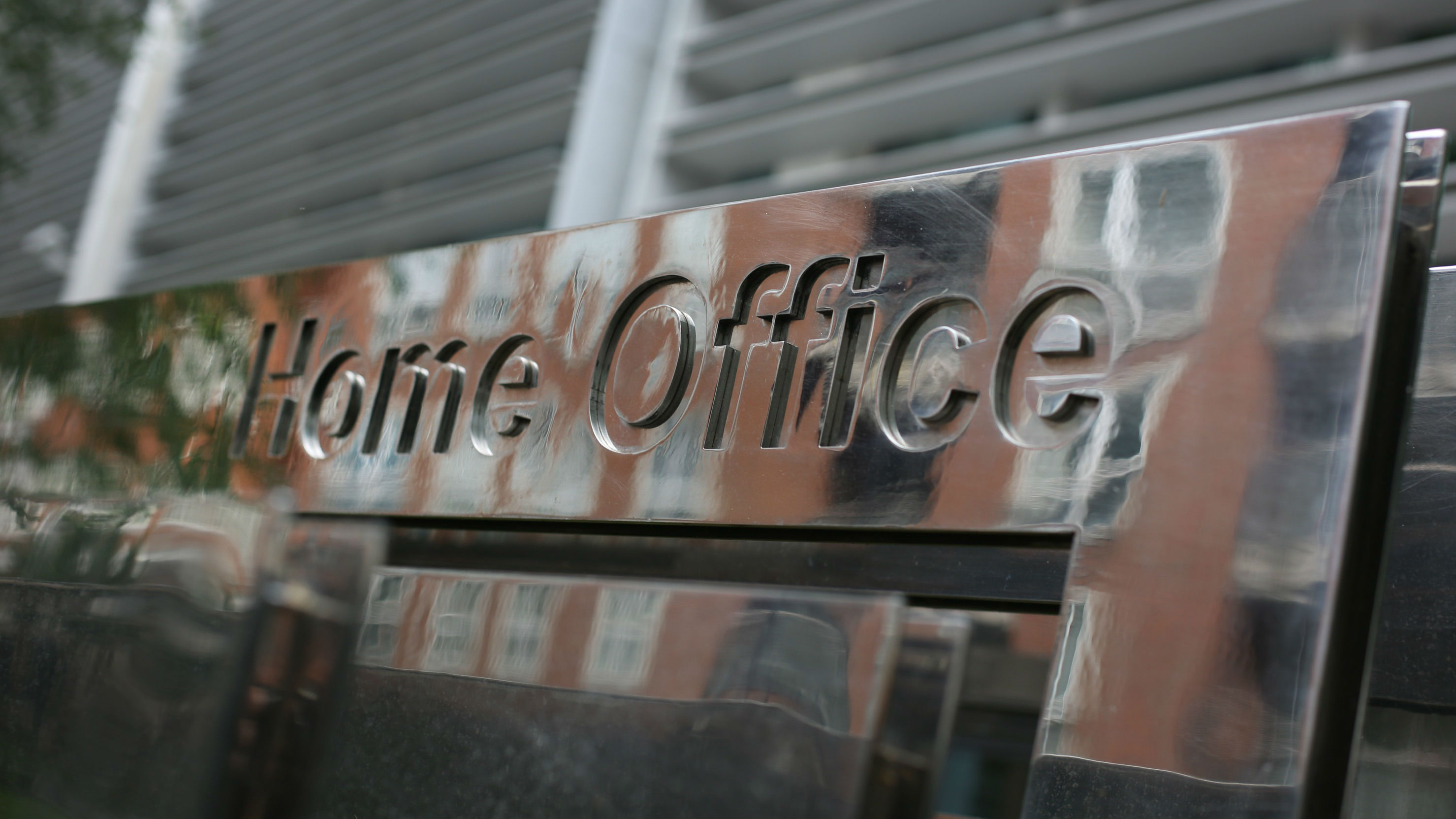 Home Office uses violent Bible verses to deny Christian asylum
Home Office uses violent Bible verses to deny Christian asylumSpeed Read Refusal letter says the passages are ‘inconsistent’ with Iranian man’s claim to have converted to ‘peaceful’ religion